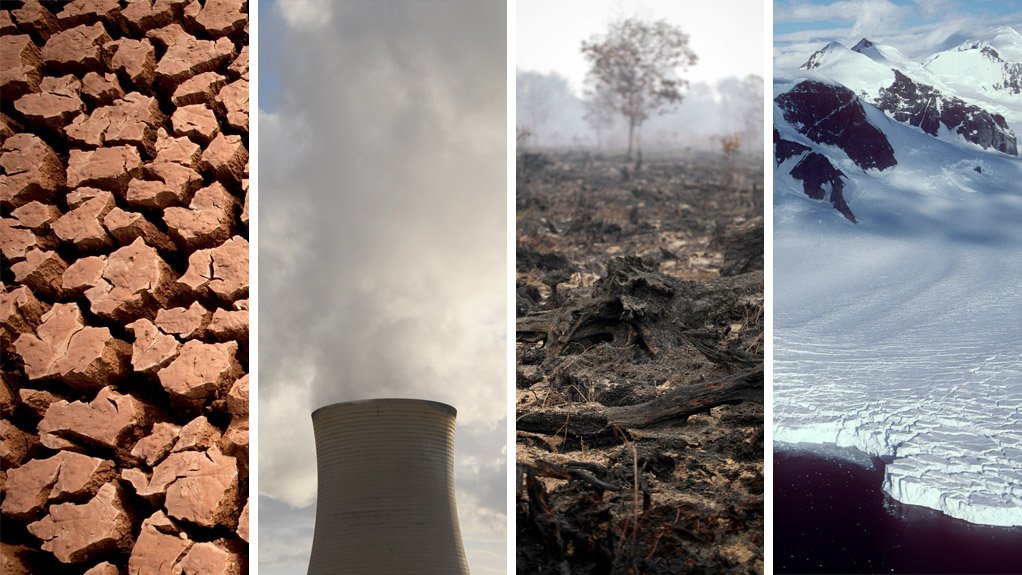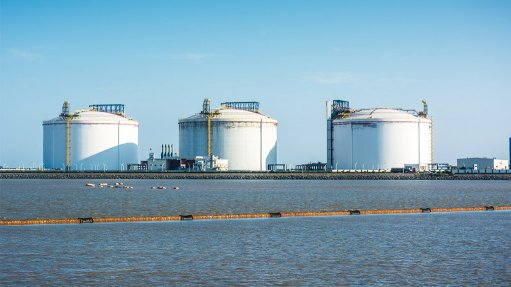New report highlights key role of cities in building climate resilience
Steps taken to build climate resilience in urban areas can materially accelerate successful climate adaptation globally, the Intergovernmental Panel for Climate Change (IPCC) latest report argues. But it also warns that many global climate risks are concentrated in urban areas, owing to the fact that cities not only house the majority of the planet’s citizens and valuable infrastructure assets, but are also centres of economic activity and development.
Titled ‘Climate Change 2014: Impacts, Adaptation, and Vulnerability’ the report is the product of IPCC Working Group II, which was tasked with assessing the impacts of climate change, as well as future risks and the opportunities to reduce risks. A total of 309 coordinating lead authors, lead authors, and review editors, drawn from 70 countries, including South Africa, produced the report, which was released in Yokohama, Japan, on March 31.
The urban risks range from heat stress and extreme precipitation, to inland and coastal flooding, landslides, air pollution, drought, water scarcity – risks that can be amplified by insufficient essential infrastructure and services as well as poor-quality housing and exposed areas.
One of the authors of the chapter on ‘Urban Areas’, Dr Debra Roberts, who is also environmental planning and climate protection head at the eThekwini municipality, warned that urban areas are at risk and vulnerable to climate change.
“It’s simply because we have so many eggs in the basket in urban areas: the majority of people now live in cities; the bulk of our infrastructure is in cities; the bulk of our economies run through cities; and we know from the literature we have assessed that a high proportion of the vulnerable people and the vulnerable infrastructure in the world is located in cities.”
Therefore, anything done to improve the resilience of urban areas and make cities more sustainable “has the potential to greatly increase the global ability to adapt to climate change”.
Speaking at a post-publication briefing hosted by the Academy of Science of South Africa and Nedbank, in Johannesburg, Roberts argued that the analysis of the urban risks had material strategic implications for local governments.
“The strategic news is that cities offer us one of the single greatest opportunities for global adaptation, if we get our act together around urban development,” she explained, adding that, investments in climate-smart municipal infrastructure and services could change the adaptation path of the world.
However, there had to be an acceptance that municipalities were “at the coalface” of climate adaptation, which would require new policies and regulations, appropriate financing and greater access to scientific research to improve the capacity of cities to adapt.
The report also underlines the importance of ecosystem-based adaptation. “Our adaptation deficit not only comes from the fact that we lack critical basic infrastructure, but that we are losing ecological infrastructure. We have to reconceive of cities as places not only for cement, but for the ecosystems that are going to be vital to our adaptive capacity.”
It also stresses that the effects of climate change were already occurring, while responding to the threats posed would require making choices and dealing with the current lack of preparedness.
RATE OF RISE A WORRY
Council for Scientific and Industrial Research systems ecologist Dr Bob Scholes cautioned that adaptation would also have limitations and should, thus, be coupled with “early and aggressive mitigation actions” to deal not only with “how much the climate changes, but also how fast it changes”.
“The rate of climate change which we are currently experiencing as a result of human activities is many, many times faster than the fastest changes in climate that have occurred over the last million years,” Scholes warned.
“Humans like to think of ourselves as the smartest species on the planet, we even named ourselves ‘homo sapiens’ – the knowledgeable ape. It’s quite ironic, therefore, that plants and animals are not having a debate about whether climate change is occurring or what to do about it – they are voting with their feet. They are changing their behaviours. They are migrating towards the poles. The problem is that they can’t do it fast enough.”
The report warned that future risks depended strongly on the amount of future climate change. “Increasing magnitudes of warming increase the likelihood of severe and pervasive impacts that may be surprising or irreversible,” it warned.
It also highlighted particular risks for Africa, and the IPCC concluded that climate change and climate variability had the potential to exacerbate, or multiply existing threats to human security including food, health and economic insecurity.
AFRICAN RISKS
Stellenbosch University’s Professor Oliver Ruppel, who was a coordinating lead author for the chapter on Africa, said the report provided more evidence of the impacts of climate change on Africa, including that people and ecosystems across the continent were “very vulnerable and exposed to climate change”.
There was also growing concern, added Professor Coleen Vogel, of the University of Pretoria, about the security implications, particularly given the likelihood that climate change could increase the displacement of people in Africa.
The health risks were also material, with lead author Dr Jane Olwoch, who is a specialist in climate change and vector-borne diseases, cautioning that there was a “very high confidence” that human health was sensitive to shifts in weather patterns. “Direct influences include heat waves, floods, droughts and fires, while the indirect influences include the destruction of ecosystems, which can result in crop failures, shifting patterns of diseases and social disruptions that arise from floods and other disasters”.
University of Cape Town Climate System Analysis Group director Professor Bruce Hewitson warned that the rise in African temperatures was expected to be higher than the global mean, with or without adaptation and mitigation efforts. “So, we have significant cause for concern.”
Comments
Press Office
Announcements
What's On
Subscribe to improve your user experience...
Option 1 (equivalent of R125 a month):
Receive a weekly copy of Creamer Media's Engineering News & Mining Weekly magazine
(print copy for those in South Africa and e-magazine for those outside of South Africa)
Receive daily email newsletters
Access to full search results
Access archive of magazine back copies
Access to Projects in Progress
Access to ONE Research Report of your choice in PDF format
Option 2 (equivalent of R375 a month):
All benefits from Option 1
PLUS
Access to Creamer Media's Research Channel Africa for ALL Research Reports, in PDF format, on various industrial and mining sectors
including Electricity; Water; Energy Transition; Hydrogen; Roads, Rail and Ports; Coal; Gold; Platinum; Battery Metals; etc.
Already a subscriber?
Forgotten your password?
Receive weekly copy of Creamer Media's Engineering News & Mining Weekly magazine (print copy for those in South Africa and e-magazine for those outside of South Africa)
➕
Recieve daily email newsletters
➕
Access to full search results
➕
Access archive of magazine back copies
➕
Access to Projects in Progress
➕
Access to ONE Research Report of your choice in PDF format
RESEARCH CHANNEL AFRICA
R4500 (equivalent of R375 a month)
SUBSCRIBEAll benefits from Option 1
➕
Access to Creamer Media's Research Channel Africa for ALL Research Reports on various industrial and mining sectors, in PDF format, including on:
Electricity
➕
Water
➕
Energy Transition
➕
Hydrogen
➕
Roads, Rail and Ports
➕
Coal
➕
Gold
➕
Platinum
➕
Battery Metals
➕
etc.
Receive all benefits from Option 1 or Option 2 delivered to numerous people at your company
➕
Multiple User names and Passwords for simultaneous log-ins
➕
Intranet integration access to all in your organisation





















